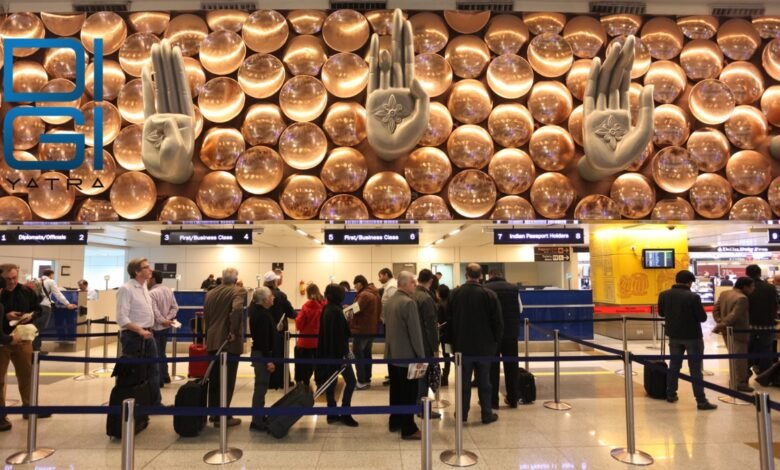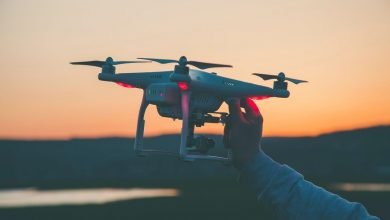Digi Yatra Dilemma: Risks of Surrendering Facial Recognition Data to Private Entity Excluded from RTI Oversight
The government's sudden urge to promote 'Digi Yatra' despite clearing the air of ambiguity around it -- raises many questions.

If you have recently embarked on any domestic Indian flight, you must be aware of how chaotic the experience of flying in Indian airlines has become. Passengers are kept waiting for stretches of 12 to 15 hours, without any provision for food and water, until their flight finally takes off. No wonder why there is a plethora of videos going viral on social media where we see a frustrated passenger slapping his pilot, somewhere we see famished passengers sitting on the airport tarmac and eating food, there are videos where passengers get locked inside boarding gates and not let out for hours. On top of all these, we see unprofessional behaviour from airport staff — who often appear rather ill-informed and uncoordinated. As per a report, over 18 lakh commuters faced flight delays between January and November 2023!
The government of India optimistically entered into a privatisation spree of Indian airports and dissolving its shares in several airlines. What is the net result? There is a severe lack of competition among the private players operating these airports and a near monopoly situation. Hence, rampantly privatised airports have been harassing their passengers despite charging exorbitant fares and “airport fees.”
Today, IndiGo Airlines (privately owned) enjoys a market share of 60%, making it immune from consumer criticism or government intervention. Every second domestic flight ticket booked in India is from IndiGo. The biggest competitor to IndiGo is Tata’s Air India, which has only 9.4% of the market share. IndiGo enjoys a complete edge over its competitors — its fleet size is three times that of Air India’s. To solve the problem created by its privatisation drive, our government has embraced an even more problematic “solution.”
Digi Yatra, What is it?
The government of India aims to ensure heckle-free assistance to air commuters via a new ‘facial recognition enabled’ biometric airport entry system called the Digi Yatra. In short, it is a contactless, paperless, seamless digital boarding pass-like mechanism designed to help passengers anytime they face a problem after they enter the airport premises.
It was announced in 2018 by the former union minister of civil aviation, Suresh Prabhu, and introduced in 2022. Today, it is functional in 13 airports across the country, and the government aims to expand this facility to each airport in India! The government promotes this mechanism by citing it as a ‘one-stop destination’ for the passengers to deal with any hindrance they might face while travelling. Civil Aviation Ministry mentioned that 91 lakh passengers have already registered themselves with Digi Yatra.
The questions now arise — Why doesn’t the government issue guidelines coercing the airports to operate in a passenger-friendly manner? Why doesn’t the government monitor these airports carefully? Instead, the government wants to outsource its job to a third party. With all the “official” laudation earned by Digi Yatra, you might think it is a government-owned initiative. No, it isn’t. — This is where the situation becomes sceptical.
Who owns Digi Yatra?
Conventionally, “airport security” is a matter of national concern. Thus, it should ideally be monitored by a competent authority functioning under the government. However, India’s flagship Digi Yatra is maintained by a trust named “Digi Yatra Foundation.” This foundation is a joint venture between the government-owned ‘Airports Authority of India’ (AAI) and the privately owned airports of Bangalore, Mumbai, Delhi, Cochin, and Hyderabad. In this venture, the AAI owns a meagre 26% stake while the private players jointly hold the lion’s share (76%). If the government owns just a quarter of its share, why is it so keen to solve the blunders of privatisation by promoting another predominantly privatised authority?
Since the Digi Yatra is predominantly a privately owned ‘facial recognition’ enabled software, passengers have been mandated to share their addresses and phone numbers, along with their facial ID. Despite all these, the functioning of Digi Yatra has been kept out of RBI’s ambit! Nobody knows who, when, or how this foundation shall get audited — thanks to its exclusivity before the RTI!
The incumbent Union Minister of Civil Aviation, Jyotiraditya Scindia, has assured that the passenger data and other credentials shall get stored in a ‘secured wallet.’ He mentioned how the uploaded data will be used through ‘blockchain technology’ and erased within 24 hours. Where is the guarantee that the data collected by the Digi Yatra Foundation will not be used to target personalised ads and promotions if not for crimes like identity theft and cyber scams? The government has already mentioned that the Digi Yatra data can be used for providing other ‘value-added services.’ There is none to question the government if private corporations bought these data and bombarded the concerned individuals with personalised ads!
It is high time that we became wary of our data security since data breaches are not uncommon in India. With biometrics-related cyber-crimes, the victim must at least place a thumb to fall prey, but facial recognition-related cyber-crimes can be executed without any physical contact! The government’s sudden urge to promote ‘Digi Yatra’ despite clearing the air of ambiguity around it — raises many questions.







